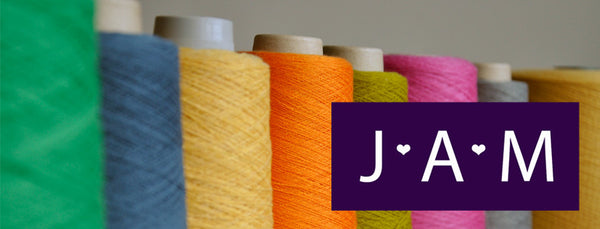A guide to buying childrens’ clothes - JAM London
Kids grow, kids get messy, they get fussy and bored. Yet most of us spend small fortunes on our children’s wardrobes. Below is our guide to buying children’s clothes wisely – online or in store. There are a few key questions worth asking yourself before committing wardrobe space to that perfect outfit which will also ensure less waste, more use and a cleaner planet.
- Is it well made? Essential for getting a lot of wear out of it
The old formula “Brand X stands for quality” no longer works. Even if the brand’s production is 100% in house, the materials they use may still be third party sourced. Mass market means mass production. Judge each garment on its own merits, look inside the garment, study the stitching, check the label – what is it made of? Does it look solid?
- Where is it made and by whom?
The last thing you would probably want your child to wear is a garment made by another child. Research the brands you buy from. Even some of the most respected retailers have had some bad press recently as they struggle to keep their suppliers in check. Do not discount the “made in China” label. Chinese excel at technology and we have worked with some very professional suppliers there. China is also the home and the main producer of two luxurious natural fibers – silk and cashmere.
- Is it easy-care? Or will it live in the laundry basket?
Children’s clothes will get dirty. And clothes which are easy to care for will get used more. Even if you can afford the dry cleaning bill, dry cleaning is not the most environmentally friendly option. One of the biggest advantages of wool, one of our favourite fibers, is that it stains less than cotton or silk and is naturally self – cleaning.
- Know your audience.
Children as young as 2 can have an opinion about their outfits, so it is wise to consider their tastes and involve them in the decision making. Some boys will refuse to wear red because they think red is “girly”. Sensitive kids don’t like clothes that restrict movement or clothes that are even a tiny bit itchy. Girly girls adore big voluminous skirts, no matter how much a hipster mum may hate the style. Cater for their tastes, even if you don’t always agree with them, so that the clothes get worn.
- Does it have keepsake appeal?
Garments designed to “ride a trend” will go out of fashion sooner and are harder to pass on even if they are made well enough to do so. Classical styles don’t go out of fashion!


JAM Team
Author